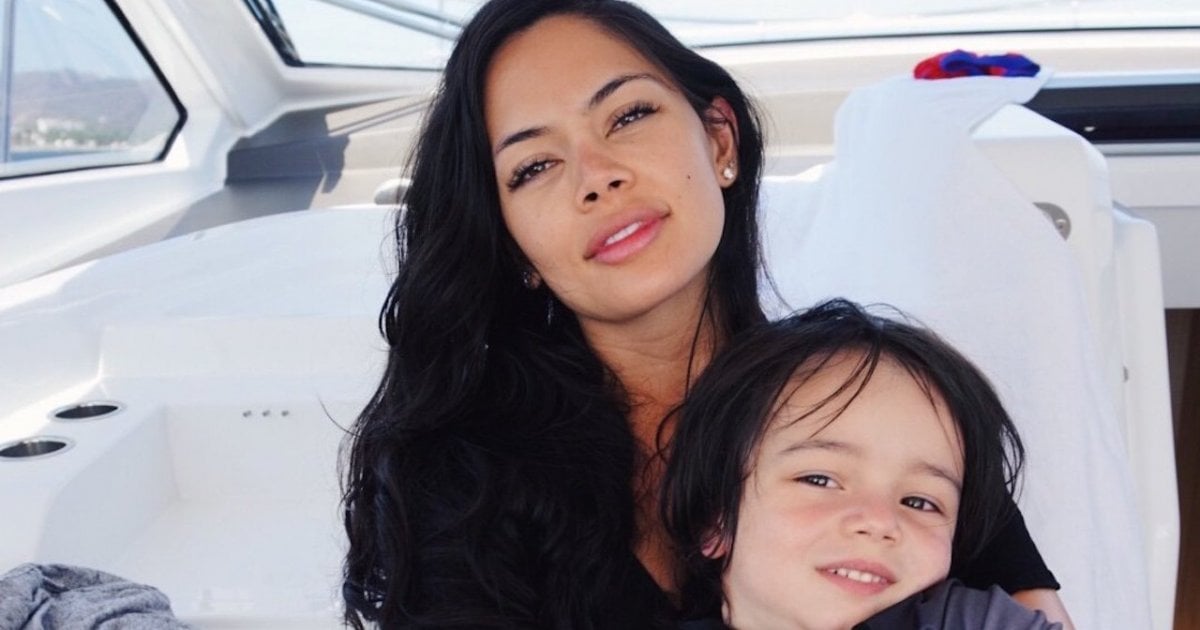Shaunyl Benson says she is “offended that children are dying” and that “… childhood cancer is so underfunded,” in an impassioned Instagram message. With her husband, MINDFREAK illusionist, Criss Angell, Benson has navigated the world of pediatric cancer since their son, Johnny Crisstopher, now six, was diagnosed with acute lymphoblastic leukemia (ALL) at age two.
Read More
“How the Heck Do We Fix This?”
Benson’s frustration will sound familiar to many families in the pediatric cancer community: “Why is chemotherapy the only option after 40 years?” she asks in a two-part post. “Why is this still happening? … Why aren't there enough bone marrow donors? … Why are children dying from cancers that have high cure rates? Why do these kids need to wait for an approval number for treatment from an office clerk that doesn't care? Why is this ok?”
Finally, she asks, “how the heck do we fix this!?
RELATED: Parents Joyfully Help 4-Month-Old Baby Girl, Lillian Grace, Ring Cancer Bell
The couple has long supported pediatric cancer causes through the Johnny Crisstopher Children’s Charitable Foundation (a 501 c3 organization) which Angel established “to raise awareness of pediatric cancer and provide funds for research, treatment, and – ultimately – a cure.”
Childhood Cancer Facts
Benson has her facts straight: According to the National Pediatric Cancer Foundation, in the U.S., only 4% of the billions of dollars spent each year on cancer research and treatments are directed towards treating childhood cancer. This funding lag has a ripple effect: Since 1980, fewer than 10 drugs have been developed for use in children with cancer while hundreds been created exclusively for adults.
In addition, the organization notes, most survivors of childhood cancer will have a significant health-related issue by the time they reach age 45, often a side-effect of treatment. Even more discouraging, since 1980, fewer than 10 drugs have been developed for use in children with cancer, compared with hundreds that have been created exclusively for adults. And pediatric cancer treatment is expensive: The average cost of a stay in a hospital for a child with cancer is $40,000.
What’s Next in Childhood Cancer
Because of treatment advances in recent decades, 84% of children with cancer now survive five years or more, according to the American Cancer Society. This is up from 58% from the mid-1970s. But when it comes to treatment for childhood cancers, doctors still rely on chemotherapy.
“There are also targeted treatments and different immunotherapies that have been studied in adults and have now moved into clinical trials for children and there has been a great deal of excitement in the community about that," Dr. Elizabeth Raetz, Director of pediatric hematology and oncology at Perlmutter Cancer Center, tells SurvivorNet.
Sarah Stapleton, a clinical social worker at Montefiore Medical Center says social workers can connect patients with resources and provide support during the treatment process.
About Childhood Acute Lymphoblastic Leukemia
There are two main types of lymphoblastic leukemia: chronic and acute. While patients can live with chronic leukemia for a long time, acute leukemia can progress quickly, and if not treated, can be fatal within a few months.
Acute lymphoblastic leukemia (ALL) is a cancer that occurs when the bone marrow makes too much of a type of white blood cell called lymphocytes, according to the National Cancer Institute. However, it is the most common type of childhood cancer, and three out every four cases of childhood leukemia are diagnosed as acute.
Signs of childhood ALL include fever and bruising, and the disease can be detected using tests that examine the blood and bone marrow. Over time, there has been a lot of improvement in treatments for childhood leukemia.
There are several different approaches to treating the disease, and the treatment plan will depend on the type of ALL the child has. Chemotherapy, radiation, chemotherapy with a stem cell transplant, and targeted therapy are all considered standard treatment, according to the American Cancer Society.
SurvivorNet has spoken with other parents whose children have cancer. Jane Wexler, for instance, whose son Justice is a survivor of ALL, previously told us that "being a caregiver is a huge job. … It's really hard to see your child going through this. … If it could be me, I'd take it in a second."
Learn more about SurvivorNet's rigorous medical review process.


